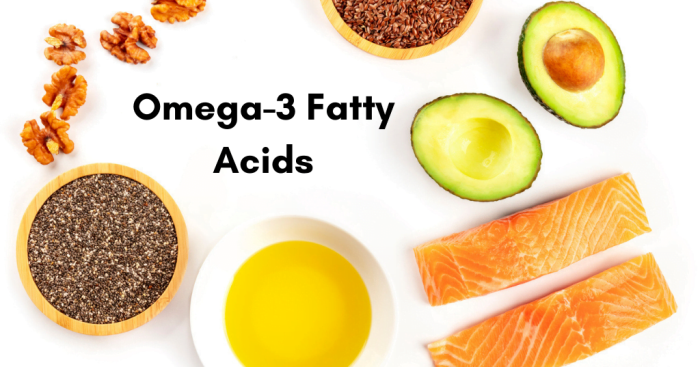Facelift surgery recovery is a crucial phase where the body heals and adjusts to the changes made during the procedure. This period typically spans several weeks, during which patients may experience swelling, bruising, and tightness around the facial area. Adhering to post-operative instructions, including rest, wound care, and gradual resumption of daily activities, plays a vital role in ensuring a smooth recovery and optimal results.
Patients are encouraged to follow a healthy lifestyle, which includes proper hydration, a nutrient-rich diet, and avoiding strenuous activities. Full recovery can take several months, during which the final results of the facelift become fully apparent.
The Importance of Diet in Post-Surgical Healing
Diet plays a significant role in the body's ability to heal after facelift surgery. Consuming a well-balanced, nutrient-dense diet helps to speed up recovery, reduce inflammation, and promote tissue repair. Foods rich in vitamins, minerals, and antioxidants are essential in aiding the body’s natural healing processes.

A diet focused on lean proteins, fresh fruits, vegetables, and whole grains can not only enhance wound healing but also improve overall health, which can contribute to better surgical outcomes.
Key Nutrients That Promote Skin Healing
Certain nutrients are particularly important for promoting skin healing after facelift surgery. Vitamins such as A, C, and E, along with minerals like zinc and selenium, play key roles in skin repair and regeneration. Omega-3 fatty acids also help reduce inflammation, while antioxidants combat oxidative stress that could hinder recovery.
Ensuring an adequate intake of these nutrients can significantly aid in reducing recovery time, minimize complications, and improve the overall health of the skin as it heals post-surgery.
Protein: A Building Block for Tissue Repair
Protein is one of the most critical nutrients for post-surgical healing, as it provides the building blocks needed for tissue repair and regeneration. After a facelift, the body requires extra protein to rebuild collagen and support the healing of incisions. Lean sources of protein, such as chicken, fish, eggs, and plant-based options like beans and lentils, are ideal for post-operative recovery.
Adequate protein intake can help strengthen the skin, reduce swelling, and support faster recovery by aiding in the reconstruction of damaged tissue.
The Role of Vitamin C in Collagen Production
Vitamin C is essential for collagen production, a protein that provides structure and elasticity to the skin. After a facelift, boosting collagen production is critical for wound healing and maintaining the results of the surgery. Foods rich in vitamin C, such as citrus fruits, strawberries, bell peppers, and broccoli, can enhance collagen synthesis and promote healthier, firmer skin.

In addition to its role in collagen production, vitamin C also acts as a powerful antioxidant, helping to protect cells from damage and inflammation during the recovery process.
Hydration and Its Importance in Recovery
Proper hydration is crucial during recovery, as it aids in tissue repair, promotes nutrient delivery, and helps flush out toxins. Staying hydrated reduces the risk of complications such as infections and ensures that the body can efficiently heal from surgery.
Foods Rich in Antioxidants for Faster Healing
Antioxidant-rich foods like berries, spinach, and nuts support faster healing by neutralizing free radicals and reducing oxidative stress. Including these foods in your diet can help strengthen the immune system and promote overall recovery after surgery.
Omega-3 Fatty Acids: Reducing Inflammation After Surgery
Omega-3 fatty acids, found in foods like salmon and flaxseeds, help reduce inflammation after surgery. Their anti-inflammatory properties can alleviate swelling and promote faster healing of wounds, contributing to a smoother recovery process.

The Benefits of Zinc for Post-Surgical Skin Health
Zinc plays a vital role in post-surgical skin health by supporting collagen production and wound healing. Foods rich in zinc, such as lean meats, beans, and seeds, can enhance skin regeneration and minimize the risk of infection.
Managing Swelling with a Low-Sodium Diet
Reducing sodium intake helps manage swelling after surgery by preventing water retention. Opting for a low-sodium diet with fresh fruits, vegetables, and whole grains can contribute to a quicker reduction in post-surgical inflammation.
Why Avoiding Processed Foods Aids in Recovery
Processed foods often contain excess sugars, unhealthy fats, and preservatives that can hinder the body’s natural healing process. Avoiding these foods allows the body to focus on recovery, promoting better healing and reducing the risk of complications.
How to Plan Balanced Meals During Your Recovery
Planning balanced meals during recovery ensures you receive the essential nutrients needed for healing. Focus on a combination of lean proteins, whole grains, healthy fats, and a variety of fruits and vegetables to support tissue repair and energy levels.
The Role of Fiber in Preventing Post-Surgery Constipation
Fiber plays a key role in preventing constipation, a common issue after surgery due to anesthesia and reduced activity. Including fiber-rich foods like oats, fruits, and vegetables in your diet promotes healthy digestion and prevents discomfort.
The Importance of Probiotics for Gut Health During Recovery
Probiotics support gut health, which is especially important during recovery when antibiotics or pain medications may disrupt the digestive system. Foods like yogurt, kefir, and fermented vegetables can help maintain a healthy balance of gut bacteria.
Foods to Avoid After Facelift Surgery
After a facelift, it's best to avoid foods that are difficult to chew or highly processed, as these can strain facial muscles and slow recovery. Soft, nutrient-rich foods like smoothies, soups, and soft fruits are better options for healing and comfort.
Timing Your Meals for Optimal Healing
Eating meals at regular intervals helps provide a steady supply of nutrients essential for tissue repair and recovery after surgery. Spacing meals every 3-4 hours can stabilize blood sugar levels, maintain energy, and ensure that your body has the fuel it needs for optimal healing.
Supplements to Consider Post-Facelift Surgery
Post-facelift surgery, certain supplements like vitamin C, arnica, and bromelain can support recovery by reducing inflammation, promoting collagen production, and minimizing bruising. However, always consult your doctor before adding supplements to avoid any interactions with medications.
The Long-Term Benefits of a Healthy Diet for Skin Health
A healthy, nutrient-dense diet can offer long-term benefits for skin health by promoting collagen synthesis, improving elasticity, and preventing premature aging. Consuming foods rich in antioxidants, vitamins, and healthy fats ensures that your skin remains vibrant and resilient long after surgery.
Consulting a Nutritionist for Personalized Post-Surgery Diet Plans
Consulting a nutritionist post-surgery can help you create a personalized diet plan tailored to your recovery needs. A professional can recommend the right balance of nutrients, foods to avoid, and how to optimize your diet for faster healing and better long-term results.
Caring for Your Skin Before and After Facelift Surgery
Learn about essential skincare routines to follow before and after facelift surgery. Proper care can enhance healing, minimize scarring, and improve overall results, ensuring that your skin looks its best post-procedure.
Combining Facelift Surgery with Laser Treatments
Discover the benefits of combining facelift surgery with laser treatments. This approach can enhance skin texture and tone, resulting in a more youthful appearance and addressing various skin concerns simultaneously for comprehensive rejuvenation.
Best Facelift Surgery in India
The Best Facelift Surgery in India is performed by skilled surgeons utilizing advanced techniques to deliver natural-looking results, ensuring personalized treatment plans for each patient's aesthetic goals.
Best Facelift Hospitals in India
The Best Facelift Hospitals in India feature state-of-the-art technology and experienced medical teams, providing comprehensive care from initial consultations to post-operative support for a smooth recovery.
Facelift Surgery Cost in India
When considering the Facelift Surgery Cost in India, patients find competitive pricing and transparent cost structures at leading hospitals, ensuring high-quality care without unexpected expenses.
Best Facelift Surgeons in India
The Best Facelift Surgeons in India are renowned for their expertise and dedication, utilizing a patient-centered approach to achieve optimal results while prioritizing safety and satisfaction throughout the process.
FAQs About Diet and Facelift Surgery Recovery
What foods should I avoid after facelift surgery?
After facelift surgery, it's best to avoid foods that are high in sodium, sugar, and unhealthy fats, as these can increase swelling and inflammation. Additionally, processed foods and alcohol should be minimized, as they can hinder the healing process and dehydrate the body.
How much protein is necessary for post-surgery recovery?
A protein intake of about 1.2 to 2.0 grams per kilogram of body weight is recommended for optimal recovery post-surgery. Protein is essential for tissue repair and can help minimize muscle loss during recovery, so including high-quality protein sources in your diet is important.
Can certain foods help reduce swelling after facelift surgery?
Yes, certain foods can help reduce swelling after facelift surgery. Incorporating foods rich in omega-3 fatty acids (like salmon and walnuts), antioxidants (such as berries and green leafy vegetables), and those with anti-inflammatory properties (like ginger and turmeric) can promote healing and reduce inflammation.
Are there any supplements that can speed up recovery after surgery?
Supplements such as vitamin C, arnica, and bromelain may help speed up recovery after surgery by reducing inflammation and promoting healing. However, always consult your healthcare provider before starting any supplements to ensure they are safe and appropriate for your specific situation.
How does hydration impact my healing process?
Hydration plays a crucial role in the healing process by maintaining skin elasticity, aiding nutrient transport, and supporting overall bodily functions. Staying well-hydrated helps reduce swelling, improves circulation, and ensures that your body can efficiently repair tissues after surgery. Aim for at least eight glasses of water per day, or more if recommended by your healthcare provider.